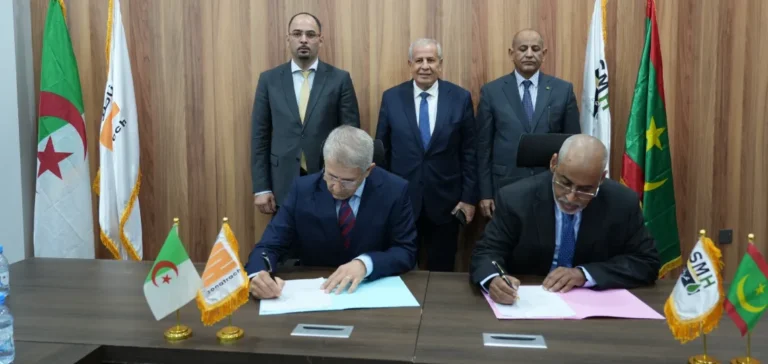Mauritania, whose downstream oil infrastructure remains limited, is strengthening its energy development ambitions through cooperation with the Algerian company Sonatrach. A recent meeting in Nouakchott between executives of Société Mauritanienne des Hydrocarbures (SMH) and Sonatrach discussed the establishment of a joint venture specialised in petroleum products distribution. This project is part of a broader strategy aimed at reducing the country’s dependence on imported fuels and building an autonomous downstream segment. To date, no official information has been published regarding financial commitments or the precise timetable for this partnership.
Confidentiality agreement signed
The two companies signed a confidentiality agreement to govern the exchange of technical information, notably on opportunities for gas field exploration. This follows a preliminary memorandum of understanding signed last January, which already laid the foundations for broader cooperation between Mauritania and Algeria in the energy sector. Nouakchott’s stated objective is clear: to import, store and efficiently distribute fuels nationwide, in a context where the entirety of consumption is currently transported by sea.
Oil infrastructure in question
According to recent data from the African Energy Commission (AFREC) published in 2023, Mauritania suffers from extremely limited storage capacity, primarily concentrated around the port of Nouakchott. This situation complicates the development of an autonomous and effective petroleum product distribution network. Currently, SMH, legally mandated to supervise the entire oil chain, operates neither refineries nor an integrated national distribution network.
Sonatrach’s recognised expertise
Sonatrach, the Algerian state-owned oil company, brings proven expertise to the project in both upstream and downstream segments of the oil sector. The company is already active in Libya and Niger through its specialised subsidiary SIPEX (Sonatrach International Petroleum Exploration and Production). This continental experience constitutes a major strategic asset in ongoing negotiations with Nouakchott.
The realisation of the partnership between SMH and Sonatrach remains, however, contingent upon finalising a formal agreement. Both parties still need to precisely define the operational scope, investment modalities, and project timelines. At this stage, no official implementation date or investment amount has been communicated, leaving several operational and financial questions open.






















